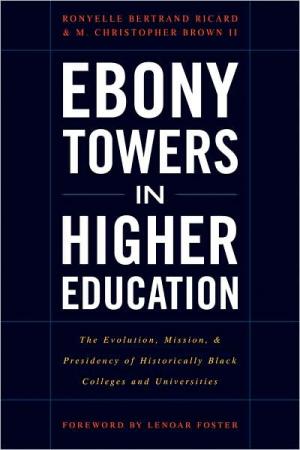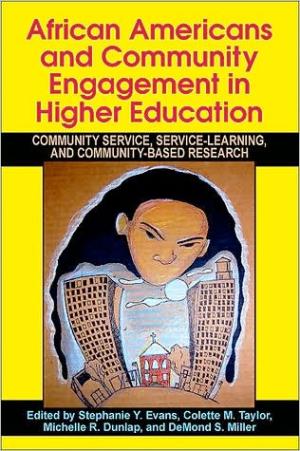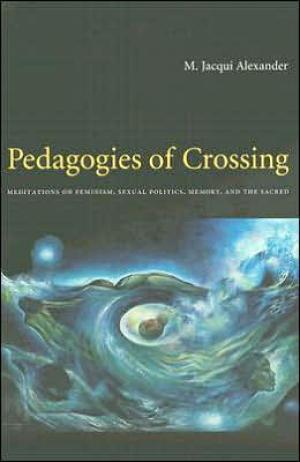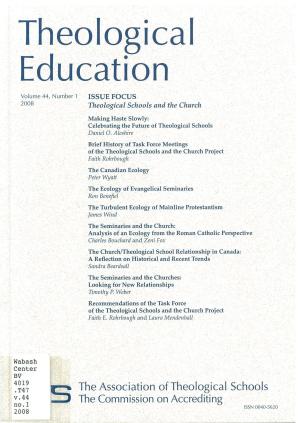Resources
Explores the field of pastoral theology and multiculturalism in New Zealand. Restructuring of the Anglican Church in Aotearoa, New Zealand; Structure of theological education; Identification of the future needs and character of the Anglican Church.
Journal Issue.
Journal Issue.

What is the purpose of black colleges? Why do black colleges continue to exist? Are black colleges necessary? Historically Black colleges and universities (HBCUs) are at the same time the least studied and the least understood institutions of higher education and the most maligned and the most endangered. This unique study examines the mission of four-year HBCUs from the perspective of the campus president, as a foundation for understanding the relevance and role of these institutions. This is the first research to focus on the role of presidents of black colleges; is based on extensive interviews with fifteen presidents; and takes into particular account the type of campus environments in which they operate. Unlike community colleges, women's colleges, men's colleges, and Hispanic-serving colleges, Black colleges are racially identifiable institutions. They also vary significantly in, among other characteristics: size, control (public or private), religious affiliation, gender composition, and available resources. Although united in the historic mission of educating African Americans, each black college or university has its own identity and set of educational objectives. The book examines how presidents define and implement mission in the context of their campuses, view the challenges they face, and confront the factors that promote or hinder implementation of their missions. (From the Publisher)

This book discusses race and its roles in university-community partnerships. The contributors take a collaborative, interdisciplinary, and multiregional approach that allows students, agency staff, community constituents, faculty, and campus administrators an opportunity to reflect on and redefine what impact African American identity-in the academy and in the community-has on various forms of community engagement. From historic concepts of "race uplift" to contemporary debates about racialized perceptions of need, they argue that African American identity plays a significant role. In representing best practices, recommendations, personal insight, and informed warnings about building sustainable and mutually beneficial relationships, the contributors provide a cogent platform from which to encourage the difficult and much-needed inclusion of race in dialogues of national service and community engagement. "This book validates the African proverb 'it takes a village to raise a child.' The topics are right on the mark and highlight the benefits of service-learning as an instrument of individual and community involvement and empowerment." - Festus E. Obiakor, coeditor of Culturally Responsive Literacy Instruction (From the Publisher)

M. Jacqui Alexander is one of the most important theorists of transnational feminism working today. Pedagogies of Crossing brings together essays she has written over the past decade, uniting her incisive critiques, which have had such a profound impact on feminist, queer, and critical race theories, with some of her more recent work. In this landmark interdisciplinary volume, Alexander points to a number of critical imperatives made all the more urgent by contemporary manifestations of neoimperialism and neocolonialism. Among these are the need for North American feminism and queer studies to take up transnational frameworks that foreground questions of colonialism, political economy, and racial formation; for a thorough re-conceptualization of modernity to account for the heteronormative regulatory practices of modern state formations; and for feminists to wrestle with the spiritual dimensions of experience and the meaning of sacred subjectivity. In these meditations, Alexander deftly unites large, often contradictory, historical processes across time and space. She focuses on the criminalization of queer communities in both the United States and the Caribbean in ways that prompt us to rethink how modernity invents its own traditions; she juxtaposes the political organizing and consciousness of women workers in global factories in Mexico, the Caribbean, and Canada with the pressing need for those in the academic factory to teach for social justice; she reflects on the limits and failures of liberal pluralism; and she presents original and compelling arguments that show how and why transgenerational memory is an indispensable spiritual practice within differently constituted women-of-color communities as it operates as a powerful antidote to oppression. In this multifaceted, visionary book, Alexander maps the terrain of alternative histories and offers new forms of knowledge with which to mold alternative futures. (From the Publisher)

Journal Issue. Full text is available online.